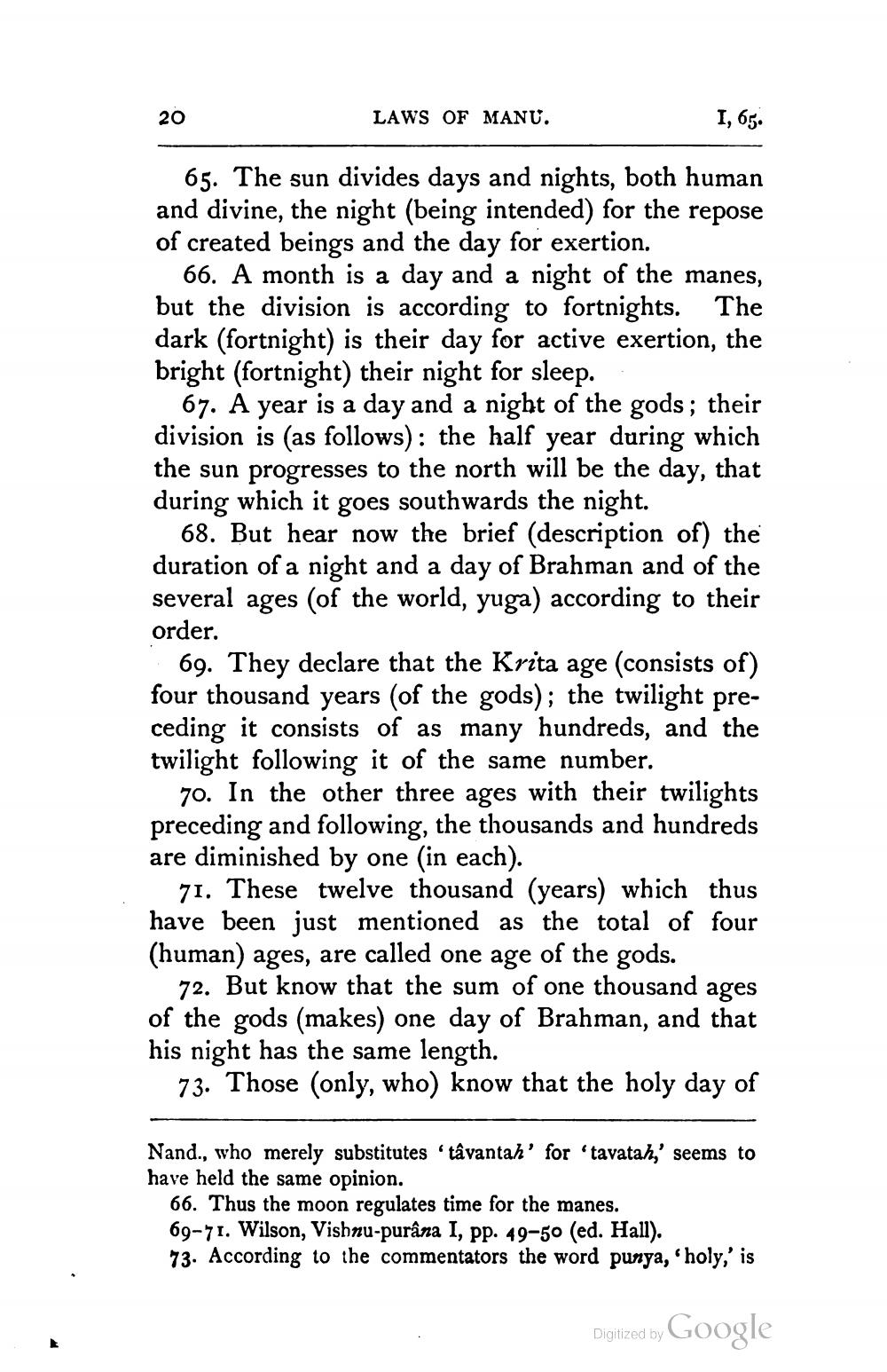________________
20
LAWS OF MANU.
1, 65.
65. The sun divides days and nights, both human and divine, the night (being intended) for the repose of created beings and the day for exertion.
66. A month is a day and a night of the manes, but the division is according to fortnights. The dark (fortnight) is their day for active exertion, the bright (fortnight) their night for sleep..
67. A year is a day and a night of the gods; their division is (as follows): the half year during which the sun progresses to the north will be the day, that during which it goes southwards the night.
68. But hear now the brief (description of) the duration of a night and a day of Brahman and of the several ages (of the world, yuga) according to their order.
69. They declare that the Krita age (consists of) four thousand years (of the gods); the twilight preceding it consists of as many hundreds, and the twilight following it of the same number.
70. In the other three ages with their twilights preceding and following, the thousands and hundreds are diminished by one (in each).
71. These twelve thousand (years) which thus have been just mentioned as the total of four (human) ages, are called one age of the gods.
72. But know that the sum of one thousand ages of the gods (makes) one day of Brahman, and that his night has the same length.
73. Those (only, who) know that the holy day of
Nand., who merely substitutes 'tâvantah' for 'tavatah,' seems to have held the same opinion.
66. Thus the moon regulates time for the manes. 69-71. Wilson, Vishnu-purâna I, pp. 49-50 (ed. Hall). 73. According to the commentators the word punya, 'holy,' is
Digitized by Google




